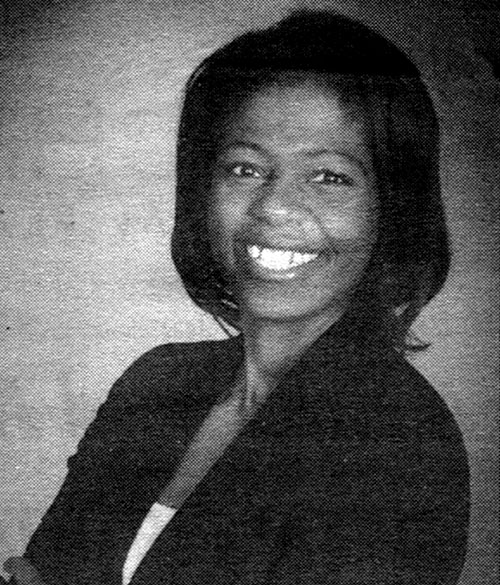

Fundraiser: Sandra Toussaint-Burgher speaks on cultivating donors at the Community Works conference on January 30.
For Sandra Toussaint-Burgher, cultivating a strong donor base is a bit like dating. Ideally, on the first date, you discover what you like about each other. During the following dates, your relationship deepens, you develop trust in one another, and at some point decide to make a commitment.
Donor development is like that, says Toussaint-Burgher, who has just been named the president and CEO of United Way of Greater Mercer County after having served as interim president since September (see page 38). “You’re expanding and strengthening a relationship,” she says. The more that donors learn about your organization and the programs that benefit the community, the more likely they are to contribute, and the more likely your relationship will continue. “It’s about engagement,” she says.
Toussaint-Burgher will share strategies to help fundraisers and nonprofits build relationships with current and prospective donors in a presentation titled “Loosening The Purse Strings: Building and Cultivating Your Donor Base” at the Princeton Community Works Annual Conference on Monday, January 30, at the First Campus Center, Princeton University. The price of $35 includes the general session, two professional development workshops, networking with more than 400 nonprofit professionals, and dinner. Online registration has closed but walk-ins are welcome. For more information, call 609-924-8652 or e-mail info@princetoncommunityworks.org.
Among the presenters is Marge Smith, founder and chair of Princeton Community Works (PCW), who will share what she has learned from serving multiple leadership roles at PCW and several community organizations in a workshop titled “Empowering Leadership: Tools and Techniques to Build an Engaged and Motivated Team.” Other workshops on leadership will cover recruiting, retaining, and recognizing volunteers; conflict resolution; delegation; leadership transitions; and productive meetings.
The conference will also feature the contributions of young people. “Youth Initiated Service Projects: A Panel on Successes and Challenges” will focus on the creativity and passion young people bring to volunteer work.
Several workshops will be devoted to social media, including which tools will best serve specific needs, a plan for going viral, and the roles of mobile, online, e-media, and peer-to-peer platforms. Other workshops will focus on planning and strategy including emerging trends, marketing, budgeting, legal issues, major gifts, and the important role of organization boards.
Two offerings will focus on grants, including grant writing and a panel discussion facilitated by Linda Czipo of New Jersey’s Center for Non-Profits, and several big-name grantors.
Toussaint-Burgher believes that understanding the perspective of the grant maker, individual donors, and volunteers is key to raising funds and launching community projects. For a potential new donor or volunteer, you need to provide education and familiarize them with what you do, and show them how your work can benefit their community and their family, she says.
On the other hand, existing donors or volunteers probably have a good idea about the things you do, so you don't have to re-introduce them to your cause. In this case, your approach is to keep them engaged by giving them updates on social media, inviting them and their families to events, or asking them to help with a project. She finds that people who are involved are more likely to give to your group again.
Ever since she was a school girl growing up in Manhattan and its surrounding boroughs of Brooklyn and Queens, Toussaint-Burgher knew she wanted a career that involved helping others.
Her father, an elementary and middle school principal, and her mother, a geriatrics nurse, helped people through their professions and through social causes in the community. “They instilled in me the importance of being involved, of giving back. It’s about being a good citizen, doing something to make your sur-roundings better. It isn't just about money, it's about giving your time, making connections, sharing your talents. I’ve seen that and experienced it,” Toussaint-Burgher says.
As Toussaint-Burgher approached college age, she started exploring career roles that matched her passions. “I had to ask myself, ‘What does it mean to help people? Run for office, be a lawyer, a social worker, an educator, or a counselor?’”
She studied political science at City University of New York-Hunter College. At NYU she earned an MPA, focusing on public policy and nonprofit management. “My goal was always social justice,” she says. I’ve always known I’ve wanted to make a broad impact, and philanthropy lends itself to that. It’s a combination of helping individuals and communities. When you’re able to successfully fundraise for a program that helps many people, you're doing that much more.”
Before joining United Way as vice president of resource development, she served as the director of development for an educational nonprofit in New York City, Youth Communication Inc.
Among the things she loves about United Way is its partnerships with other organizations. “There are many issues that affect the community, like homelessness, hunger, at risk youth, child poverty, health, and literacy,” she says. “It takes more than one organization to impact these issues, and United Way speaks to this by collaborating with others. We partner with donors, volunteers, corporate, other nonprofits, and fenders. Everyone is sharing their best ideas and resources.”
— Lynn Robbins